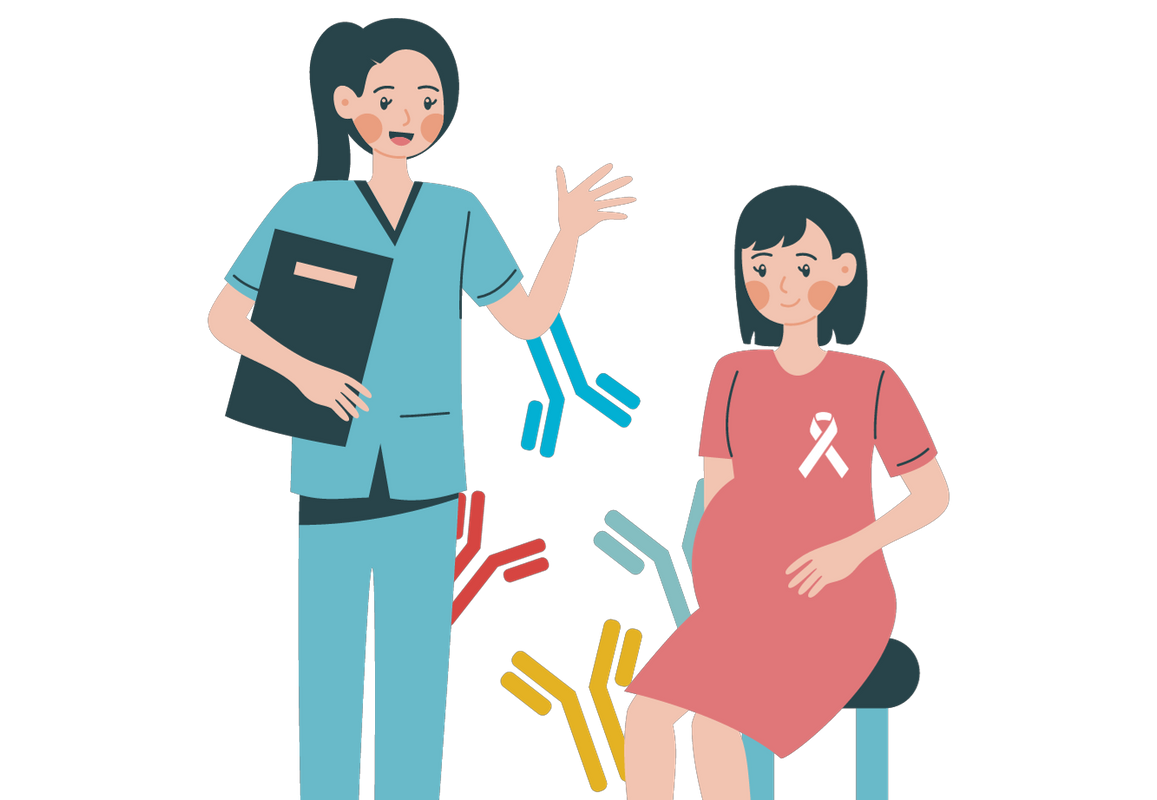Unexpected consequences of immunotherapy
Dutch doctors were faced with an exceptional patient, a four month old baby that was admitted to intensive care with a very serious enteritis, diarrhoea and weight loss. Initially, a number of causes were excluded, until a link was made with the immunotherapy the mother received during the pregnancy for the treatment of skin cancer. The team asked for the advice of the Leuven research group Cancer and Pregnancy. Together they published the case study.
Prof. dr. Frédéric Amant, gynaecologist at UZ Leuven and co-investigator of the trial: “Certain types of chemotherapy and irradiation, the classic cancer treatment, are relativile safe for the unborn child, even though caution is still required. Immunotherapy is a more recent, innovative cancer treament, meaning it is not often applied in pregnant women. We did not know whether it could cause unwanted effects in the baby. This exceptional case shows for the first time that immunotherapy could have a serious impact on the baby and that side effects may not appear until months after birth.”
Luckily the child could be treated successfully with anti-inflammatory drugs and is now doing well.
Lessons for the future
The team draws important lessons from this case study and wants to warn doctors worldwide. Prof. dr. Amant: “The benefits for the mother have to be considered case per case against the possible disadvantages for the child. And babies that are exposed to immunotherapy for a long time, have to receive long-term follow-up. Even though chemotherapy during the pregnancy is applied more and more, the case clearly show that we have to be extra careful with newer cancer treatments such as immunotherapy and precision oncology.”
This experience is also included in the international advice group ABCIP (Advisory Board on Cancer, Infertility and Pregnancy), established and led by the Leuven team, to better inform fellow doctors and future patients.
This case clearly show that we have to be especially careful with newer cancer treatment such as immunotherapy and precision-oncology.Prof. dr. Frédéric Amant, gynaecologist at UZ Leuven
Conclusive evidence thanks to new analysis heel prick
As in Belgium, Dutch babies have a little blood drawn shortly after birth via the heel prick. The research team of the Dutch Cancer Institute developed a new test to examine the now-dried blood sample for abnormal values.
Thanks to the new technique they found conclusive evidence that immunotherapy was at the basis of the symptoms: after birth, the blood of the baby contained a very high concentration of a certain antibody, exactly the same that the mother had been treated with, and even higher than her blood levels. This explains why the baby developed such serious adverse effect, while the mother did not experience any intestinal problems. More specifically, in this type of immunotherapy, it concerned the anti-PD-1 antibody, also known as pembrolizumab.
